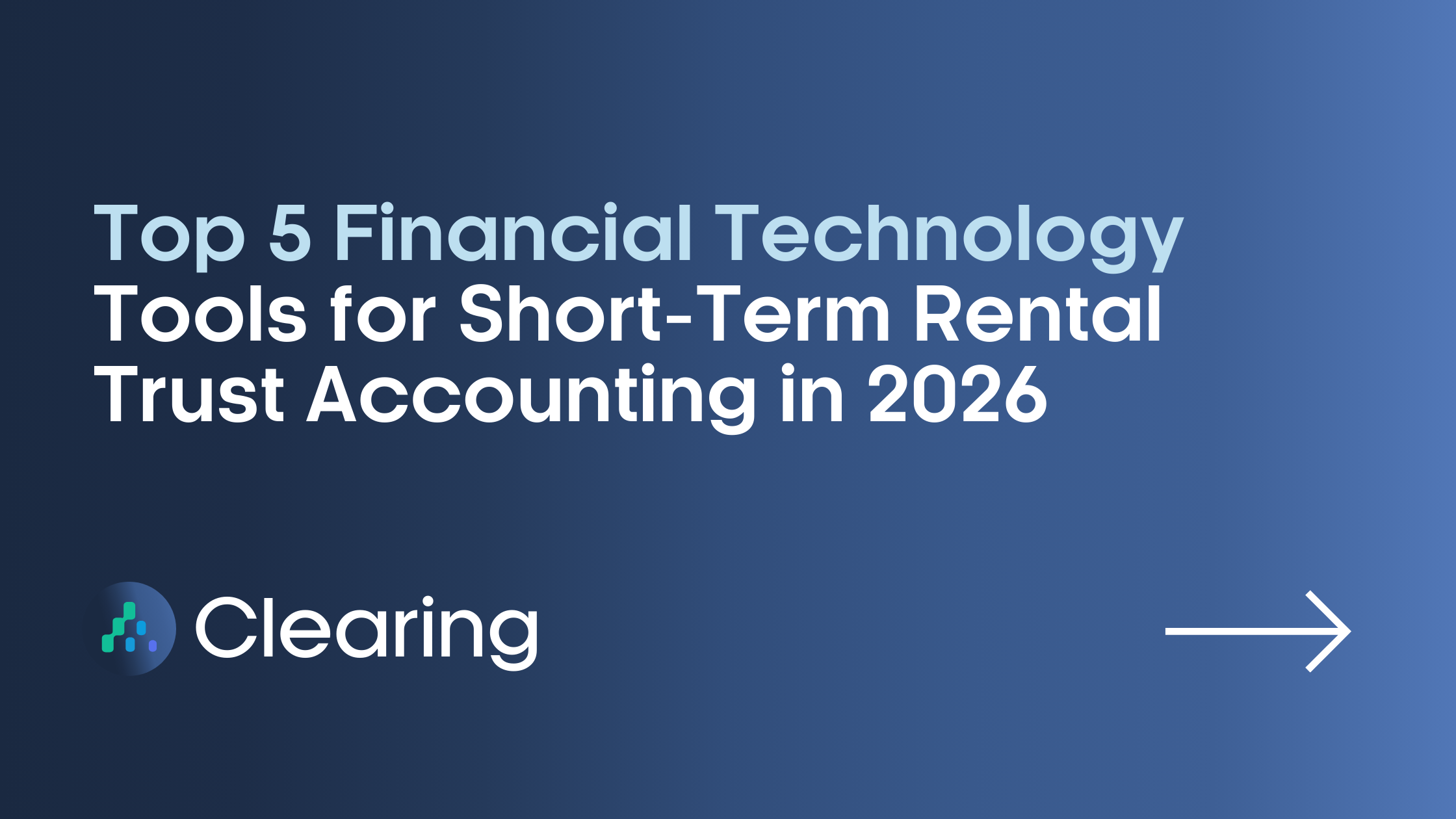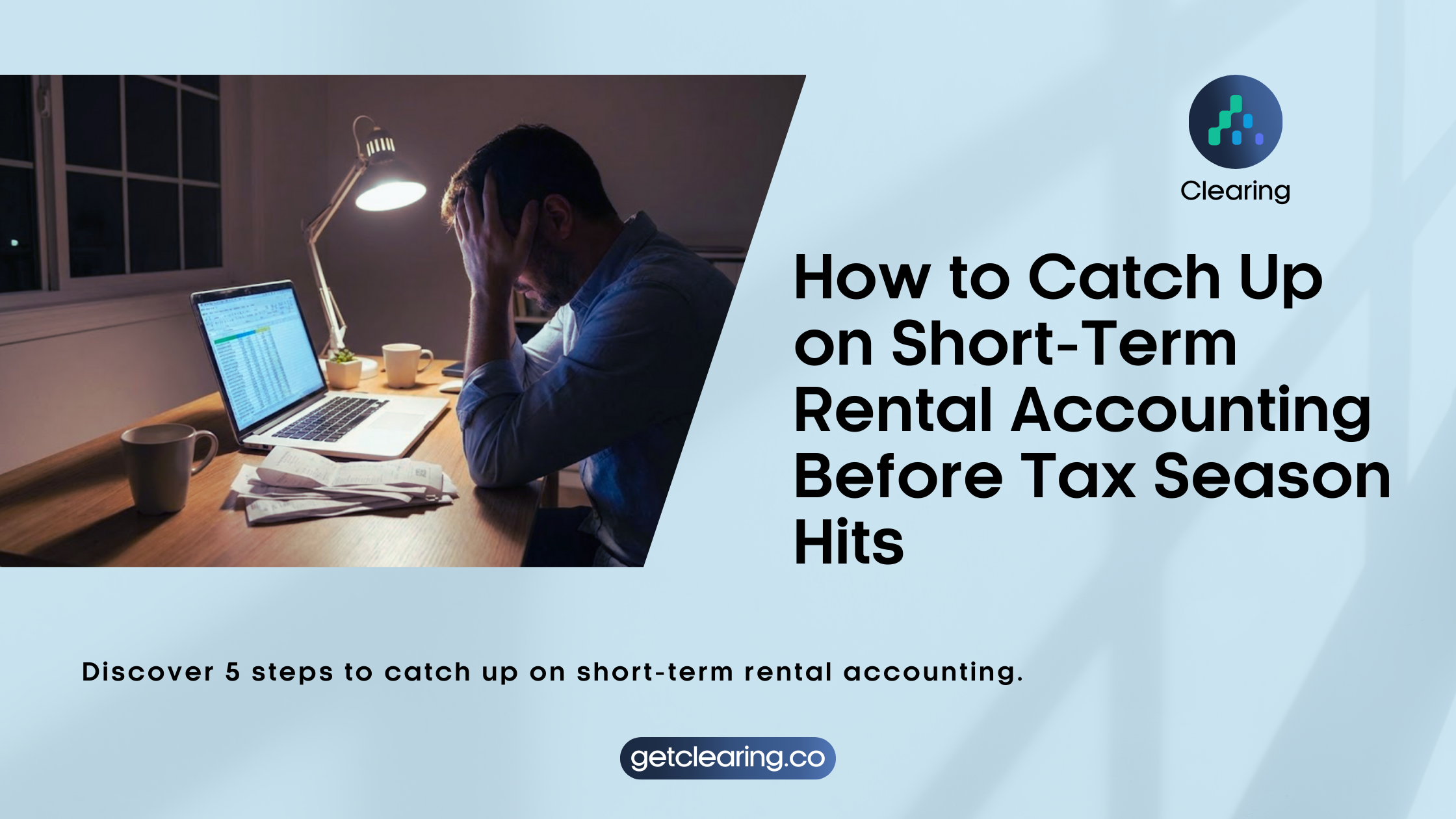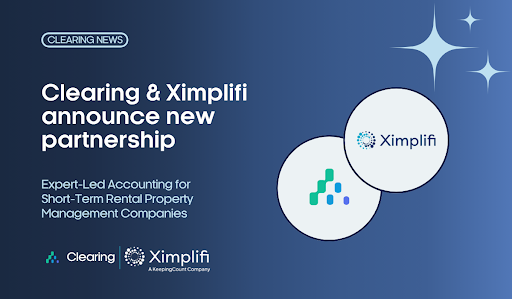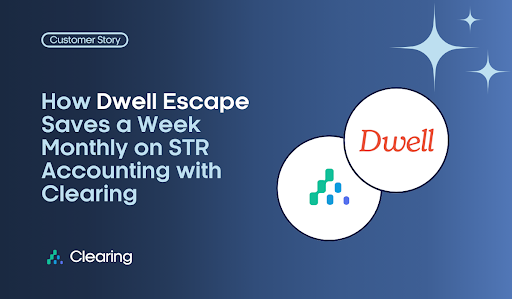Best Practices for Investing in Short-Term Rental Properties
Discover the best practices for investing in short-term rental properties. Learn how to get the most out of your investment and stay compliant with laws.
June 23, 2023
Michelle
.png)
Short-Term Rental investing can be a great way to generate passive income and diversify your portfolio. However, it also comes with challenges and considerations. To maximize your profits and minimize your risks on your Short-Term Rental property, it's essential to follow best practices.

Here are some tips to help you make the most out of your investment:
Research Your Market:
Before investing in a short-term vacation rental property, it's important to conduct thorough research. Market research lays the foundation for a successful short-term vacation rental property investment. Techniques for this include:
Identify Your Target Market:
Define the type of guests you want to attract, such as vacationers, business travelers, families, or couples. Different markets have varying preferences and needs.
When you have a clear understanding of your target market, your decisions will be closely aligned with the desires of your potential guests. Catering to your market's preferences and needs leads to higher guest satisfaction. Satisfied customers can positively impact your property's reputation and help secure future bookings from repeat customers or referrals.
Assess Competition:
Identify other short-term vacation rentals in the area. Analyze their offerings, pricing, average occupancy rate, rates, and guest reviews. This can help you understand your competitive advantage and determine how to differentiate and innovate your own property.
Analyze Vacation Rental Local Demand:
Look at historical data on occupancy rates, average monthly rent, nightly rates, and seasonality. This data can give you insights into when demand is highest and how much you can potentially charge.
Study Local Events and Seasons:
Identify major local events, holidays, and peak seasons that might impact demand. Adjust your pricing strategy accordingly to capitalize on high-demand periods.
Select Potential Locations:
The location of your investment property can have a significant impact on your investment property's occupancy rates, rental income, interest rates, taxes, and overall profitability. Consider factors like proximity to attractions, restaurants, grocery stores, and entertainment options when considering locations for Short-Term Rentals.
If possible, visit the potential locations in person. This will give you a better feel for the neighborhood, its amenities, and its overall appeal to guests. Engage with locals to gain insights into the area's reputation, upcoming changes, and new developments that could affect the short-term vacation rental market.
Understand Local Regulations:
Research local laws, local government regulations, and zoning ordinances related to real estate and short-term vacation rentals. Some areas have restrictions on how investment properties can be rented out, so ensure you're compliant.
Short-Term Rental Property Seasonal Fluctuations:
Understand how demand changes throughout the year. Some locations might have a strong tourist season followed by slower periods. Plan your pricing and marketing strategies accordingly.
Here's how you can gauge seasonal fluctuations:
- Historical Data Analysis: Examine historical data on occupancy rates, booking patterns, and rental income for different months or seasons. This data can provide insights into when vacation rentals are in the highest demand.
- Local Events and Holidays: Identify local events, holidays, festivals, conferences, and other occasions that might influence travel patterns. Significantly, Short-Term Rentals' profitable season is during major events, holidays, or desirable seasons.
- Weather and Climate: Consider how weather and climate impact tourism in your location. For example, beach destinations might experience higher demand during warm months, while mountain getaways might be more popular in winter.
- School Vacations: Analyze school vacation periods, as they can significantly affect family travel. Families often seek Short-Term Rental properties during school breaks.
- Tourist Seasons: Research when your location experiences peak tourist seasons. These periods often see a surge in demand for accommodations
- Business Travel: Determine if your location experiences business travel peaks during specific months or times of the year. Business travelers can influence Short-Term Rental demand in urban areas.
- Local Industry Patterns: Understand the industries in your location. For instance, a location with a popular ski resort might have higher demand in winter, while a convention city might see peaks during conference season.
- Online Search Trends: Use online tools to track search trends related to your location and property type. This can provide insights into when people are actively searching for accommodations in the area.
- Competitor Analysis: Monitor the pricing and occupancy trends of other Short-Term Rental properties in the area. This can help you understand how competitors adjust their rates during different seasons.
- Guest Reviews and Feedback: Analyze guest reviews and feedback to identify patterns in guest experiences and satisfaction during various seasons. This can help you anticipate expectations for different times of the year.
- Dynamic Pricing Tools: Utilize dynamic pricing tools and software that use real-time data to adjust your rental rates based on demand, seasonality, and local events.
- Local Tourism Organizations: Reach out to local tourism organizations for information on visitor patterns and peak seasons in your area.
Locational Safety Standards
Safety is the top concern of any traveler. Guests want to feel secure and comfortable during their stay. Knowing they are in a safe location allows them to relax and fully enjoy their trip.
A safe location attracts a broader range of guests who prioritize their well-being and security. It contributes to a positive guest experience, and satisfied guests are more likely to leave positive reviews, recommend your property, and become repeat customers.
Note that safety incidents can quickly tarnish your property's reputation. Negative reviews or news of safety concerns can deter potential guests and impact your property's booking volume and profitability. A location with safety issues could lead to legal problems and liability. Guests might hold you responsible for accidents or incidents that occur on your property if safety measures are not in place.
Many insurance policies for Short-Term Rental properties have requirements related to safety standards. Choosing a safe location can ensure that you meet these requirements and maintain coverage.
Research local governments, and crime statistics, read reviews from locals and travelers, and immerse in the area in person to get a sense of its safety. Ultimately, prioritizing safety in your location selection process is an investment in both the short-term success and long-term sustainability of your Short-Term Rental business.
Check Online Platforms:
Online platforms like Airbnb, Vrbo, and Booking.com provide a global platform to showcase your property. The location of your property determines its visibility to potential guests who are searching for accommodations in that area.
It uses algorithms to rank listings in search results. Location is a key factor in these algorithms. Properties that are well-located and match guest search criteria are more likely to appear at the top of search results.
Guests often use location as a primary search filter. Being in a desirable location increases the chances of attracting guests who are specifically interested in staying in that area. Locations with high demand for accommodations attract more bookings. If your property is in a popular area, you're likely to receive more inquiries and bookings through these online platforms.
The location of your property influences your pricing strategy. Properties in prime or sought-after locations can command higher rental rates, increasing your potential revenue. Location can also impact guest satisfaction, which in turn affects reviews and ratings. Positive reviews lead to more bookings, while negative reviews based on location-related issues can harm your property's reputation.
Different locations attract different types of travelers. By choosing the right location, you can target niche markets such as business travelers, families, adventure enthusiasts, or cultural tourists. Your property's location can be a unique selling point. You can highlight nearby attractions, amenities, and local experiences in your property's description to attract potential guests.
Online platforms may have specific requirements and rules for listing properties. Ensuring your property meets these guidelines is essential for listing your property on these platforms.
Online platforms also provide insights into booking trends, popular areas, and peak seasons. This data can help you make informed decisions about where to invest in Short-Term Rental properties.
Last, online platforms can facilitate direct communication between hosts and guests. Being able to provide information about the location, nearby attractions, and local tips enhances the guest experience.
In essence, a well-located property on these platforms can lead to higher visibility, increased bookings, better revenue potential, and a stronger competitive edge. When considering the location of your Short-Term Rental property, keep in mind how it aligns with online platform dynamics and how it can influence your property's online presence and guest engagement.
Calculate Potential Expenses:
Manage all expenses associated with acquiring, maintaining, and operating the property. This includes property taxes, insurance, utilities, cleaning, maintenance, and potential property management company fees.
Based on your research, calculate the potential income you could generate from a Short-Term Rental investment in the property. Take into account both high-demand and low-demand periods. Consider the overall economic health of the area. A strong local economy usually correlates with increased travel and demand for short-term vacation rentals.
Utilize data analysis tools and platforms that provide insights into market trends, occupancy rates, and pricing strategies.
Networking and Industry Reports:
Market Insights and Expansion
Networking allows you to connect with fellow property owners, managers, and industry professionals. Through conversations and discussions, you can gain insights into market trends, real estate demand, shifts in guest preferences, and emerging opportunities. You can exchange tips, strategies, and best practices that have proven successful when managing Short-Term Rental properties.
Industry reports might highlight emerging markets or destinations that are gaining popularity among travelers. This information can guide your decisions if you're considering expanding your property portfolio
Short-Term Rentals Regulatory Updates
The Short-Term Rental industry is subject to regulatory changes. Networking and industry reports can help you stay updated on legal developments that might affect your short and long term tenants or overall rental property and its operations.
Partnerships and Collaborations
Networking can lead to potential partnerships with other property owners, property managers, service providers, and local businesses. Collaborations can enhance guest experiences and open up new marketing opportunities.
Performance and Risk Mitigation
Industry reports often provide benchmarking data that allows you to compare your rental property's performance with market averages. This can help you identify areas for improvement and set realistic goals. Networking and industry reports can inform you about potential risks or challenges in the short-term and long term rental property market. This knowledge allows you to take proactive steps to mitigate these risks.
Staying Competitive
Networking exposes you to innovative ideas and strategies used by others in the industry. Implementing new ideas can give you a competitive edge and potentially help you attract more guests.
Professional Development
Industry events, conferences, and webinars offer opportunities for skill-building and professional development. You can learn about property management techniques, marketing strategies, and technological advancements.
Real Estate Investors and Lender Relations
If you're seeking investors or lenders, having a strong network and access to industry reports can enhance your credibility and demonstrate your knowledge of the market.
Adapting to Trends
Industry reports highlight trends in guest behavior, technology, sustainability, and more. Staying informed about these trends allows you to adapt your property and services to meet evolving management expectations.
Set Aside Money for Maintenance:
Maintaining a Short-Term Rental property can be expensive, especially if unexpected repairs or upgrades are needed. To avoid financial surprises, it's important to set aside money for regular maintenance, cleaning fees, property maintenance fees, and unit repair costs. A general rule of thumb is to allocate 1-2% of the property's value for annual maintenance expenses.
Create a Budget:
Creating a budget is an essential step in managing your short-term and long-term rental properties and property management companies' finances. It allows you to track your income and expenses, set financial goals, and make informed decisions about your investment. Make sure to include all your expenses, such as property taxes, insurance, utilities, maintenance costs, licensing fees, and marketing expenses.
Build Relationships with Guests:
Building relationships with your guests can help you stand out in a competitive market and increase your chances of repeat business. Consider providing a personal touch, such as leaving a handwritten welcome note or offering recommendations for local restaurants and attractions. Responding promptly to inquiries and complaints can also help build trust and increase your number of positive reviews.
Stay Compliant with Regulations:
Short-Term Rental regulations can vary by location, so it's important to stay up to date on the latest laws and regulations in your area. Make sure to obtain any necessary permits or licenses and comply with zoning restrictions, maximum occupancy rules, and safety standards. Many investors fail to do so resulting in fines or legal action.
Consider a Financial Tool:
Financial tools can help you assess the potential return on investment (ROI) for a property in a specific location. They take into account factors such as property price, rental income, expenses, and local market trends to determine the financial viability of the investment.
Usually, it has a dashboard that allows you to compare the financial performance of properties in different locations. You can evaluate which location offers positive cash flow, more reservations, and overall profitability. It can help you develop a pricing strategy based on factors like local rental rates, demand, and expenses. They ensure that your property's rental rates align with the market's financial dynamics
Using financial tools, like Clearing, you can estimate various expenses associated with the property, such as property taxes, maintenance costs, utilities, insurance, property management fees, and potential repairs. These expenses can vary based on the location of the rental home.
You can project the property's potential cash flow over future periods of time. This projection helps you understand how much income the property can generate and whether it can cover expenses and provide a positive steady cash flow.
Financial tools often consider historical and current real estate market data, allowing you to analyze trends in property prices, rental rates, and demand in the chosen location
Financial tools provide you with quantifiable data that can guide your decision-making process. They help you make choices based on facts rather than assumptions.
Financial tools assist you in evaluating the long-term financial viability of the investment property, the management company, and the location overall. You can assess whether the property will remain profitable and appreciate in value over time.
When negotiating property prices, having a solid understanding of the financial aspects of real estate allows you to make competitive offers that reflect the property's true value.
Financial tools help you calculate and assess the potential ROI for properties in different locations. This allows you to prioritize real estate investments with the highest expected returns.
Financial tools also provide you with data-driven insights that can be used to communicate with potential lenders, partners, or investors. Accurate financial analysis enhances your credibility.
Utilize a Cash Management Tool
Managing your Short-Term Rental property's finances can be a time-consuming task. To make it easier, consider using a cash management tool such as Clearing.
By following these best practices, you can increase your property’s chances of success in the Short-Term Rental market, or the long-term lease rental market. Remember to research your market, choose the right property, set aside money for maintenance, create a budget, utilize a cash management tool, build relationships with guests, and stay compliant with regulations.
Short-Term Rental Finances with Clearing
Take your finances to new heights with Clearing - it will be worth the investment.
This powerful financial tool can streamline the financial management of your Short-Term Rental properties by categorizing details and tracking the financial performance of each property or building. With these granular insights, you can gain a comprehensive understanding of the cash flow, income, and expenses associated with each property. This not only illuminates the financial situations of each property but also helps identify areas for improvement, paving the way towards enhanced and positive cash flow.
The beauty of Clearing lies in its flexibility. It enables property owners to delve deep into the financial intricacies of individual rental properties or to widen their lens and consider regions. Need a birds-eye view of your entire portfolio? No problem - Clearing has you covered. It lets you look at the collective performance of all your properties as one holistic business.

One of Clearing's standout features is its ability to generate detailed reports. These reports allow for an in-depth financial understanding of the properties in your portfolio.By identifying trends, potential issues, and opportunities, these reports serve as invaluable tools for completing data-driven decision-making.
Moreover, Clearing understands that business is a team effort. That's why it allows you to invite shareholders to the platform, providing crucial stakeholders with visibility into their investment. This collaborative approach fosters transparency, enables informed discussions, and promotes alignment on business strategies.

Leveraging Clearing in your Short-Term Rental real estate investment strategy ensures you're armed with the right information at the right time, enabling smarter decisions and better returns. Embrace Clearing and watch your Short-Term Rental property rental business soar.
Get in touch with us today!
Clearing is a Financial Technology Company, not a bank.

.png)
.png)






.png)
.png)
.png)

.png)

.png)


.png)
.png)
.png)
%20(1).png)
%20(1).png)
%20(1).png)
.png)
%20(2).png)
%20(1).png)
%20(1).png)
.png)

.png)
.png)
.png)
%20(1).png)
.png)
.png)
.png)
.png)
.png)
.png)
.png)
%20(1).png)
.png)
.png)
.png)
%20(1).png)
%20(1).png)
%20(1).png)








.jpg)
%20(1).png)
%20(1).png)
%20(2).png)
%20(1).png)

%20(1).png)
%20(1).png)
%20(1).png)



%20(1).png)
%20(1).png)
%20(1).png)
%20(1).png)
%20(1).png)


%20(1).png)
%20(1).png)
%20(1).png)
%20(2).png)
%20(2).png)



%20(2).png)


%20(2).png)
%20(1).png)
.png)


%20(2).png)
%20(2).png)

.jpg)
.png)
.png)
.png)


